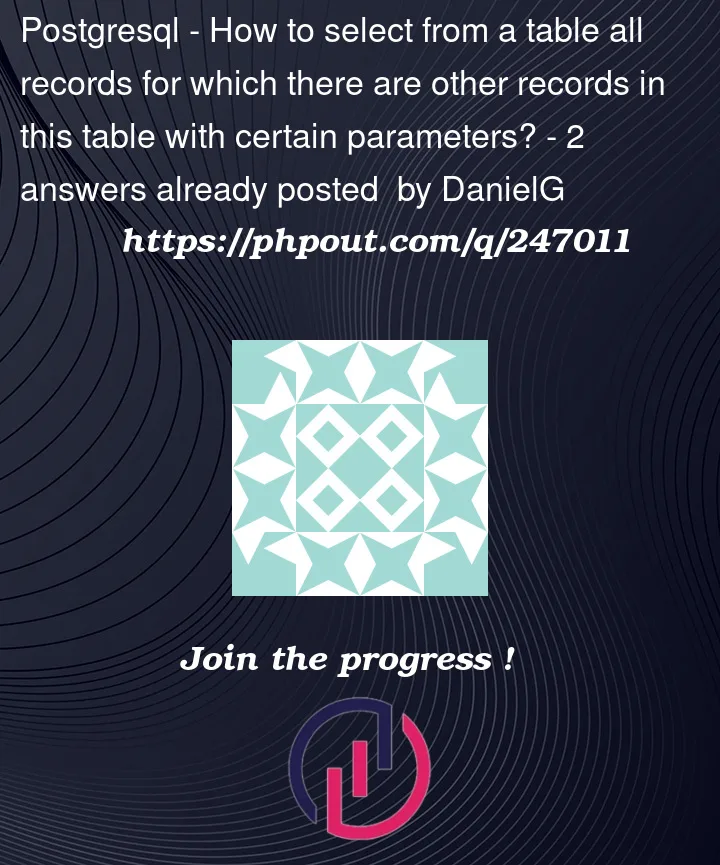I have a table like this in Postgres:
| user_id | project | status |
|---|---|---|
| 1 | p1 | finished |
| 2 | p1 | finished |
| 2 | p2 | finished |
| 2 | p3 | finished |
| 3 | p1 | finished |
| 3 | p2 | finished |
| 3 | p3 | finished |
| 4 | p1 | finished |
| 5 | p1 | finished |
| 6 | p1 | finished |
| 6 | p2 | finished |
I need to select all users who have finished projects p1, p2, p3. (in this sample table it will be user_id 2 and 3.
If I use where project in ('p1', 'p2', 'p3') , it will return any of these projects, not all of them. Unfortunately, projects are out of order, otherwise I would use row_number() and select all rows where row_number = 3. So, in my query I need to mention clearly, users with which projects finished I want to see in my result table
As a result I need this:
| user_id |
|---|
| 2 |
| 3 |




2
Answers
Having
Then
Working sample
In order to achieve this result, you can use a query with the
HAVINGandGROUP BYclause to filter the results:The query will select the
user_ids which have finished projects p1, p2 and p3.